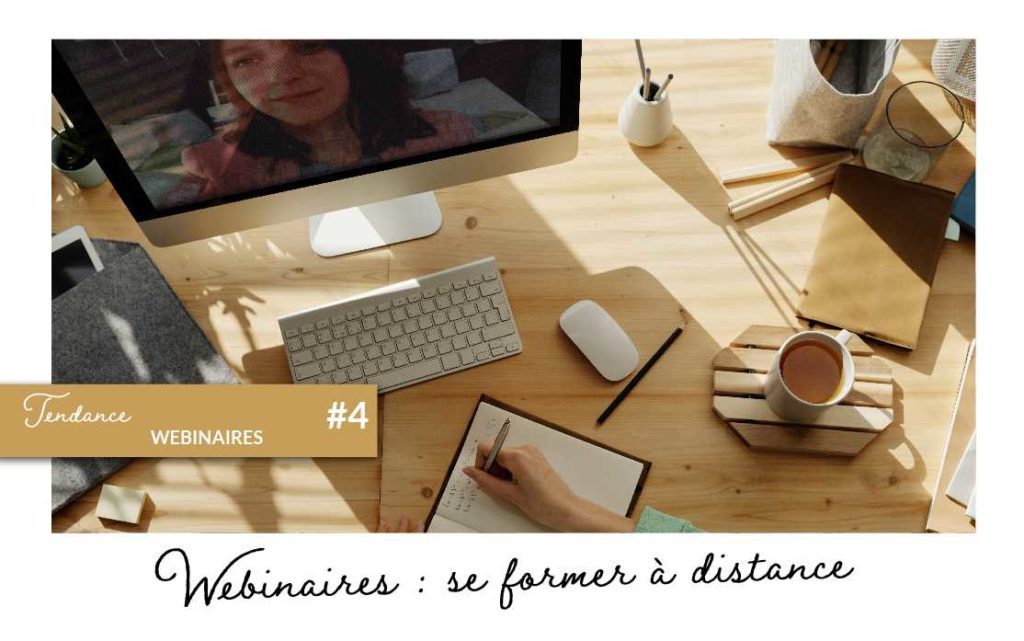Webinar comes from the contraction of the words “web” and “seminar”. The word refers to conferences organised online on specific platforms or apps. They did exist before the Covid-19 pandemic but this type of training developed massively from March 2020 as soon as lockdowns began. Meeting and gathering restrictions meant that many events and conferences initially planned as on-site and in-person went online. Video conference apps developed and some saw their business sky-rocket. This was the case for Zoom, an app for organising online meetings and webinars that saw its sales increase by 78% in March 2020. Klaxoon, a French start-up specialised in virtual meetings, saw its connections increase fivefold compared to the same period.
The pandemic also generated new television programmes using the same model as the webinar. This is the case for the cooking programme “In the kitchen live with Cyril Lignac” broadcast on M6 from March 2020. From his own kitchen, the famous chef and patisserie expert created a set menu with 2 recipes every day in a video conference along with guest “pupils”, all live on television. This format helped his audience recreate the recipes following the live programme at home, in their own kitchens. This simple and fun concept was a hit with many viewers, so much so that 2 more series were broadcast, between August and October and between December and January for the festive season.
The webinar format has many benefits:
- No need to travel. For example, you can attend a training course from your shop or anywhere else. Only one imperative: a good internet connection. This saves time for everyone involved.
- Webinars are quite short so bakers can continue working while they follow the course.
- Lower organisation and logistics costs for organisers and those participating in the course.
- Webinars can be watched again as many times as necessary as they are often recorded.
Similarly to in-person training, it’s possible for students to chat with the trainer. On the webinar platforms, you can send written questions in a chat area or speak and interact with the trainer using the microphone. It’s also possible for the trainer to show themselves live when speaking and share their presentation, commenting on it and using it to sum up their lesson. For bakers, patissiers and all other retailers, webinars are a very good way to carry on developing and learning while reducing health risks.
In these very strange times, at Atelier m’alice we are convinced that it is essential to continue learning. It will soon become possible to return to our training centres (because contact is fundamental in our businesses) but we believed it essential to set up webinars to continue to provide access to training, whatever the health situation and whatever the location.
To adapt to your new needs and the unforeseen challenges of the last few months, Atelier m’alice now has two webinar courses. The first is a course on nutrition run by Charles Brumauld, dietician, nutritionist and health journalist. On the course: nutritional basics in terms of the body’s needs, nutritional values of products and how to answer your customers’ questions about the nutritional aspects of bread and the different grains, or becoming more involved in food education on an everyday basis.
The second webinar is focused on developing advertising for your bakery using Instagram and Facebook. At the end of this course run by Caroline Benaroch and Marie Hannah, you will be able to use the Facebook and Instagram social media platforms and create your advertising theme. You will have everything you need to produce relevant content and post it to increase your visibility on the internet.
For more information about our webinars, contact us.



